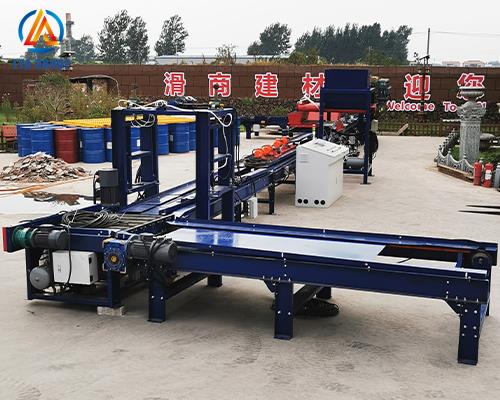Concrete paver production line
News 2024хЙД2ц13цЅ 153

A concrete paver production line is a setup of machinery and equipment used to manufacture concrete pavers or concrete paving stones. These production lines are designed to efficiently produce a large volume of pavers with consistent quality and precision. Here are the key components and processes typically involved in a concrete paver production line:
Batching and mixing: The production line starts with a batching plant that accurately measures and combines the ingredients for the concrete mixture. This includes aggregates (such as crushed stone or sand), cement, water, and additives. The materials are then mixed in a concrete mixer to achieve a homogeneous and well-blended mixture.
Molding: Once the concrete mixture is ready, it is transferred to a paver mold or formwork. The molds are typically made of steel or other durable materials and are designed to create the desired shape, size, and texture of the pavers. The concrete mixture is poured into the molds, which are then vibrated or compacted to ensure proper filling and compaction.
Curing: After molding, the pavers are transferred to a curing area or chamber where they undergo a controlled curing process. This can involve steam curing, water curing, or other methods to facilitate proper hydration and development of strength in the concrete. The curing process allows the pavers to gain sufficient strength before further handling or packaging.
Demolding: Once the pavers have cured and reached the desired strength, they are demolded from the molds. This can be done manually or with the help of demolding equipment, such as an automatic demolding machine. The demolding process should be carefully executed to ensure the pavers are not damaged or deformed during removal from the molds.
Finishing: After demolding, the pavers may undergo additional finishing processes to achieve the desired appearance and surface characteristics. This can include processes such as shot blasting, grinding, or surface coating to enhance the aesthetic appeal and durability of the pavers.
Quality control: Throughout the production line, quality control measures are implemented to ensure that the pavers meet the required specifications and standards. This includes regular testing of the concrete mixture, dimensional checks of the pavers, and visual inspections for any defects or imperfections.
Packaging and storage: Once the pavers have been inspected and approved, they are typically stacked and packaged for storage or transportation. Packaging can vary depending on the specific requirements and market preferences, but common methods include palletizing or bundling the pavers.
Automation and control: Many concrete paver production lines incorporate automation and control systems to manage and monitor the entire production process. This includes controlling the flow of materials, adjusting machine parameters, tracking production data, and ensuring safety measures are in place.
